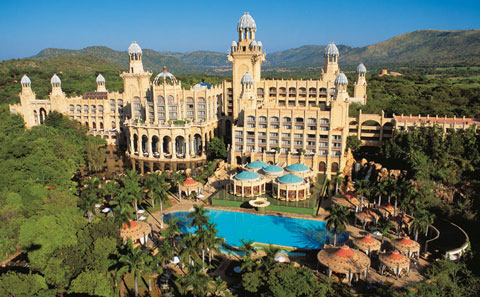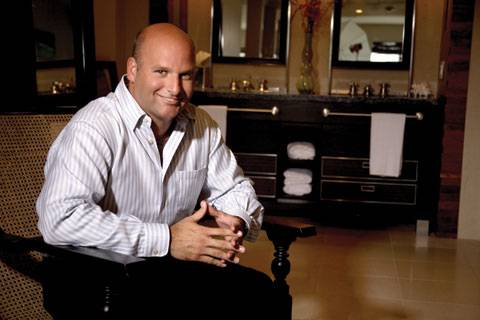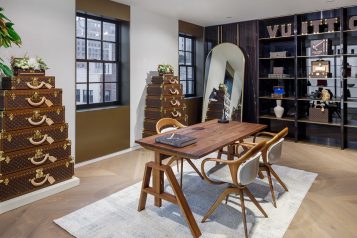Kerzner’s story begins in a poor suburb of Johannesburg where his parents ran a café and, later, a modest, 50-room hotel in the resort town of Durban. Kerzner, always small for his age, was regularly taunted by students in school for his small stature and Russian-Jewish roots. What they didn’t realize was that this harassment would play a key factor in shaping Kerzner’s single-minded determination. Although his college years took him into chartered accounting (and the beginnings of a lucrative boxing and wrestling career, which he is very proud of), Kerzner knew that he wanted to revolutionize the way people experienced resorts, both in his country and around the world. His first big gamble was his investment in an underdeveloped site on a stretch of beachfront at Umhlanga Rocks, a tiny fishing village in South Africa. With backing from his former accounting clients, Kerzner proceeded to build South Africa’s first five-star hotel, the Beverly Hills, which featured the novel concept of a complete resort, combining entertainment and sports facilities with a mix of restaurants and bars. Kerzner was only 29. Within one year, the hotel was dubbed the premier resort for local and international tourists, and remains relevant to this day.
After the success of the Beverly Hills, Kerzner launched the Southern Sun chain, which opened some thirty hotels around the country. Always the perfect gambler, Kerzner subsequently sold his shares in Southern Sun to focus on a new company called Sun International, and embarked upon the much talked about Sun City project. Skeptics had bleak forecasts for a resort located on a secluded government-declared “homeland” over two hours away from Johannesburg. “I remember when he came up with the plans we all thought ‘Who is this mad man? This guy is going to flop!’ as it was over two hours away from anything! Little did I know, that when it was built, I personally would drive there after work, and party and have fun almost every weekend,” recalls South African-born George Markantonis, now the general manager of Atlantis. But Kerzner turned a blind eye to naysayers; he saw something that nobody else could imagine. The result was a $267 million African-fantasy themed resort, the most ambitious resort development in South Africa, featuring a 62-acre man-made jungle and the massive ‘Valley of Waves,’ a glorified pool big enough for hundreds of guests to swim, and even surf, its artificial currents.
What truly set Sun City apart was Kerzner’s vision; one that saw black and white South Africans free to eat, drink and gamble in the same resort. “Sun City at the time was very controversial. And it was my belief that we were doing something very significant and meaningful. South Africa was a white South Africa back in those days-it was the 80’s. So, Sun City was very unusual to have the type of environment where everybody was able to have fun together. I thought we were contributing to a change of the color barriers,” explains Kerzner. And when, in 1994, South Africa emerged from the grim days of apartheid, Sun City took center stage for the Miss World pageant, immediately thrusting the young, free country into international acclaim. With a string of successes in his native country to his credit, Kerzner was now ready to take on the world.
The ambitious visionary turned to Britain, where he intended to conceive another mega gaming project. But Kerzner suddenly had a change of heart and withdrew his bid for a gaming license. He had been approached by Lazards, a group of investment bankers, to see whether his company was interested in acquiring a bankrupt little Bahamian property called the Paradise Island Resort. “I had been to Paradise Island in the late 60’s, and I had always said, ‘what if?’ So, I said to Paul (O’Neil, Kerzner International COO) this is fantastic. You have the beach right here with an amazing ocean. So, we spoke with the investment bankers in the early 90’s in hopes to acquire it.” Kerzner had his work cut out for him. Tourism in the Bahamas was seriously lagging and the Paradise Island Resort had fallen into disrepair, despite rehabilitation attempts by the likes of Donald Trump and Merv Griffin.





















